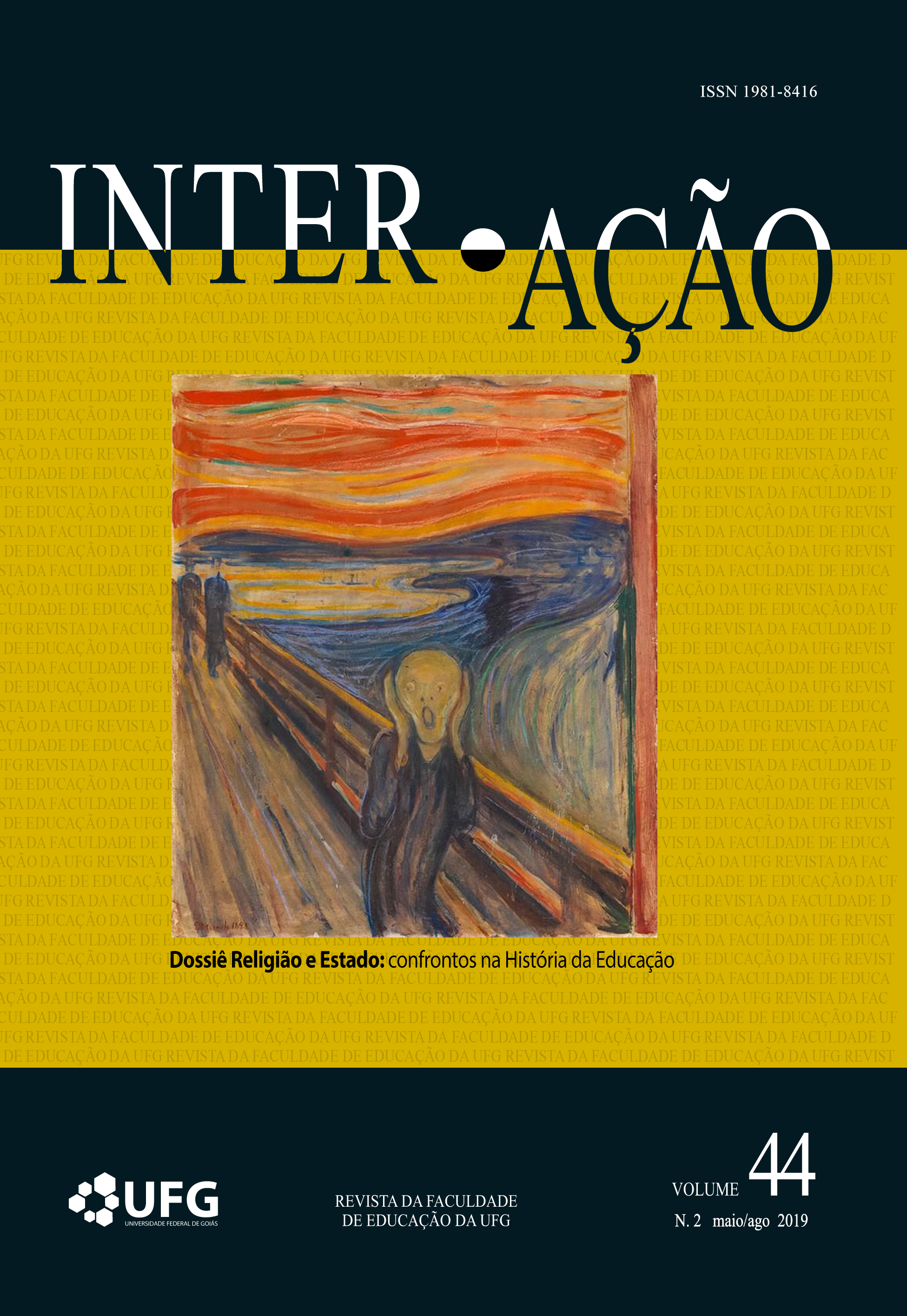A MITOLOGIA DOS ORIXÁS EM AULAS DE BACIAS HIDROGRÁFICAS: O ENSINO E OS DIÁLOGOS SOBRE INTOLERÂNCIA RELIGIOSA
DOI:
https://doi.org/10.5216/ia.v44i2.56525Abstract
O objetivo deste trabalho é narrar uma experiência pedagógica sobre o ensino de Geografia para uma turma do 7º ano do Ensino Fundamental em uma escola pública e que teve como conteúdo as bacias hidrográficas e tema transversais a mitologia dos orixás e a tolerância religiosa. A metodologia envolve observações empíricas sobre os alunos e os espaços religiosos nos quais eles se inserem. As revisões da legislação que fundamenta e torna necessário o trabalho do professor envolvendo esse conjunto de temas, as publicações a respeito das religiões de matriz africana, a abordagem das mesmas em sala de aula, a literatura e a mitologia dos orixás. Estes passos permitiram elaborar um plano de aula sobre de bacias hidrográficas que destrinchou em discussões e ensinamentos sobre preconceitos religiosos e sobre a mitologia dos orixás e das religiões que neles acreditam.
Downloads
Published
Versions
- 2026-01-21 (2)
- 2019-08-06 (1)
How to Cite
Issue
Section
License
Copyright (c) 2019 Wellington Gabriel de Borba

This work is licensed under a Creative Commons Attribution-NonCommercial 4.0 International License.
Inter-Ação uses the Creative Commons Attribution 4.0 License for Open Access Journals (Open Archives Initiative - OAI) as the basis for the transfer of rights. Open access means making documents available on the Internet free of charge, so that users can read, download, copy, distribute, print, search, or link to the full text of documents, process them for indexing, use them as input data for software programs, or use them for any other lawful purpose, without financial, legal, or technical barriers.
Authors publishing in this journal agree to the following conditions:
1) Authors retain copyright and grant the journal the right of first publication, with the work simultaneously licensed under the Creative Commons Attribution License, which permits redistribution of the work with attribution and first publication in this journal.
2) Authors are permitted to enter into additional, separate agreements for non-exclusive distribution of the version of the work published in this journal (e.g., for publication in an institutional repository or as a book chapter), with attribution and first publication in this journal.
3) Authors are permitted and encouraged to publish and distribute their work online (e.g. in institutional repositories or on their home page) at any time before or during the editorial process, as this may generate productive changes as well as increase the impact and citation of the published work.















